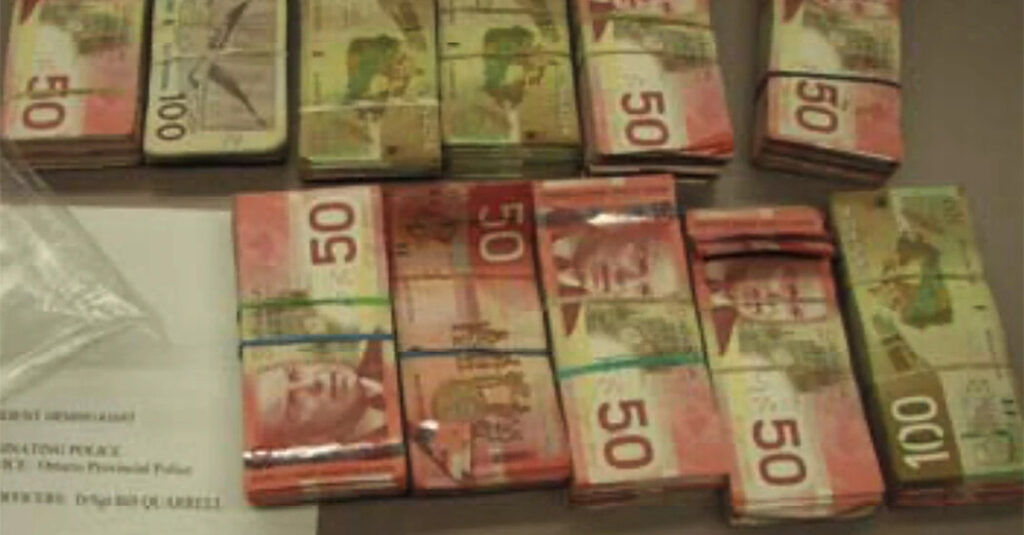On Dec. 1, 2009, the police searched a house on the outskirts of Thunder Bay, Ontario, looking for an illegal .22-caliber handgun.
Instead, they found cash — lots of it — hidden around the property, including 15,000 Canadian dollars stuffed in a heating vent in the living room floor, $9,750 in a suitcase in the garage and $1.2 million in a Rubbermaid tub that was buried under the dirt floor of the garage.
The man renting the property, Marcel Breton, was charged with possessing criminal proceeds and other offenses. But at trial, he successfully challenged the search warrant that the police used to seize the money, and was acquitted.
That left the question of what to do with the cash: Should it be returned to Mr. Breton, or forfeited to the government?
On Monday, an Ontario appeals court upheld an a judge’s ruling that the Canadian government could keep the cash because, even though Mr. Breton was acquitted, prosecutors were able to prove that the money was not lawfully his.
The appeals court noted that a trial judge found in 2023 that it was “unusual for an average person to have such a large amount of money buried in tubs underneath their property.”
Or, as the trial judge, F. Bruce Fitzpatrick of Ontario’s Superior Court of Justice, wrote: “How many people have that much cash buried in tubs under their property? How many average people have that much money in their bank accounts at any given time? Not a lot in my experience.”
The way the cash was packaged — in 30 bricks that were marked with the numbers “5” and “10” and contained exactly $5,000 and $10,000 each — was also “consistent with the cash being proceeds of crime, according to expert evidence,” the appeals court said.
The court also cited expert evidence that $20 bills, by far the most common found in the bundles, were associated with the drug trade, and noted that two bricks of cash found in the tub contained about $60,000 and $40,000, which was “consistent with the price of 1 kg of cocaine in 2009.”
The money was found near about 111 grams of cocaine and digital scales in the garage, court records show. And Mr. Breton did not report any income to the Canada Revenue Agency from 2001 to 2008, the court said.
Mr. Breton had argued that there were “reasonable alternative explanations” for the cash hidden on the property, court records show.
He cited the variety of tools and vehicles on the property as evidence that he was running a cash-only repair business. (The police found the tub of cash buried in the garage after they pushed a vintage Chevrolet Camaro Z28 out of the way, court records show). Mr. Breton also suggested he could have won the money legally in a casino or in the lottery. But the trial judge rejected those explanations in 2023, and the appeals court upheld his decision.
The judge did, however, rule that the government must return to Mr. Breton the $15,000 that was stuffed into the heating vent in the living room floor. The judge found that “this cash, alone, was his personal money, being kept there, close to him.”
Mr. Breton’s lawyer, Michael Johnston, declined to comment on the case. The government’s lawyers did not respond to emails.
Jeffrey Simser, an expert on asset forfeiture and money laundering law, and a former legal director at the Ministry of the Attorney General in Toronto, said the case was unusual because the government pursued the cash in criminal court, not through the civil asset forfeiture process.
He said that the judge had reason to explore whether the cash was legally Mr. Breton’s, even though the search warrant that the police used to seize it did not authorize them to look in the garage where the Rubbermaid tub full of cash was found.
“This isn’t a case where there was serious misconduct by the police,” Mr. Simser said, and “there’s a lot of reason to believe that this was dirty money.”
Michelle Gallant, a law professor at the University of Manitoba, said she was not surprised that prosecutors pursued the money for years after the criminal case against Mr. Breton collapsed.
Any time the police seize large amounts of cash, “there’s almost a presumption that it has got to be from criminal activity. Period,” Professor Gallant said. And when the money is stashed in a Rubbermaid tub and buried in a garage, prosecutors will inevitably ask why it was not deposited in a bank, she said.
“It’s not even earning interest,” she said. “At least earn some interest.”
Michael Levenson covers breaking news for The Times from New York.
The post Police Found $1 Million in a Tub Under a Garage. The Government Gets to Keep It. appeared first on New York Times.




